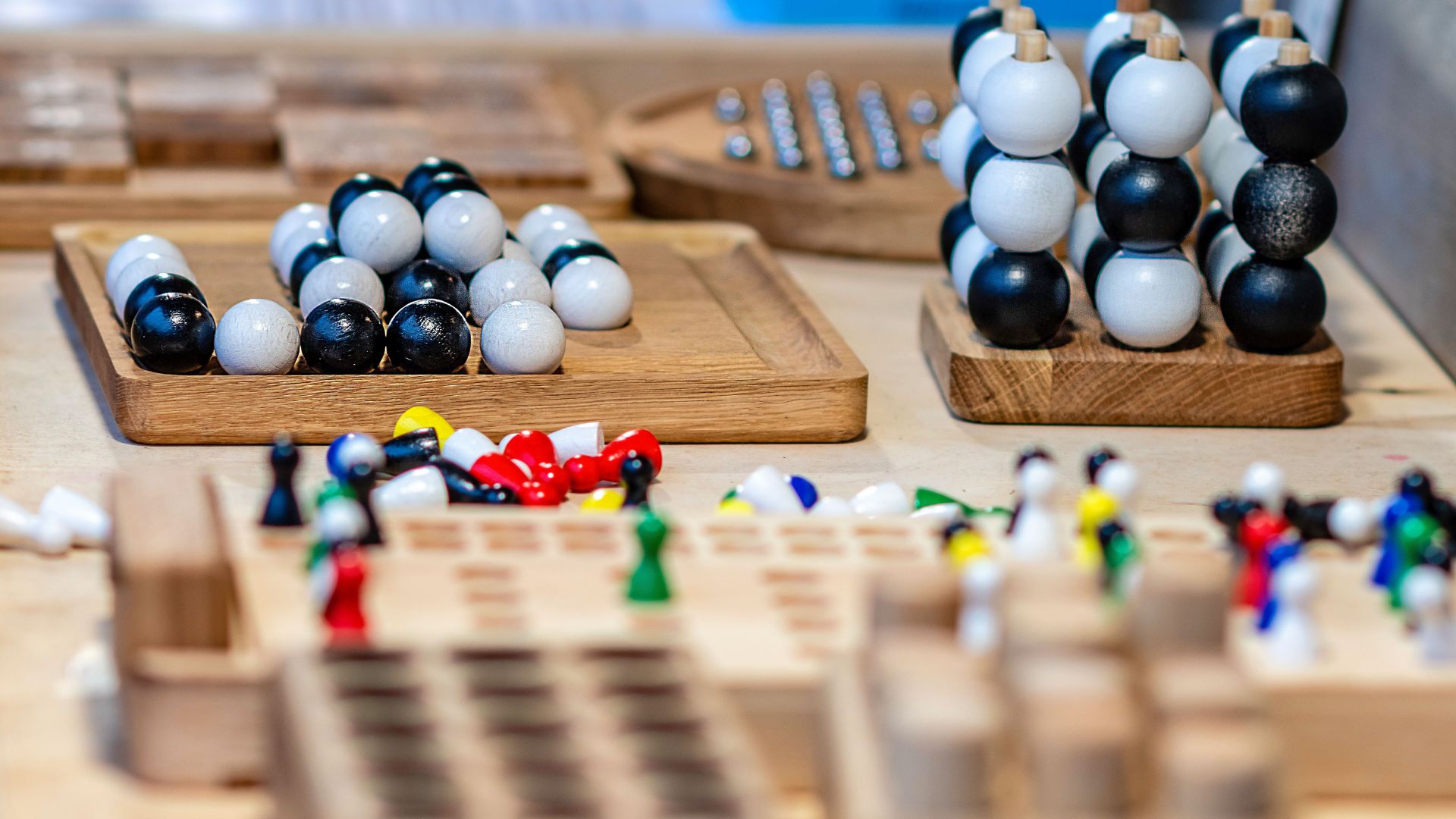Korean culture is deeply rooted in traditions that have been passed down through generations, and traditional games are an integral part of this cultural heritage. These games, often enjoyed during holidays, festivals, and family gatherings, are more than just pastimes—they serve as a connection to Korea’s rich history and values.
1. Yutnori: The Classic Korean Board Game

Yutnori is one of Korea’s most beloved traditional games, often played during the Lunar New Year. The game involves a board marked with a circular path and four wooden sticks, each side marked differently. Players take turns throwing the sticks into the air, and the combination of how the sticks land determines the number of spaces a player can move their pieces on the board. The goal is to move all of your pieces around the board before your opponents. While the game incorporates an element of luck, as the stick throws are unpredictable, it also requires strategic thinking, especially when deciding whether to advance a piece or send an opponent’s piece back to the start. Yutnori is a game that brings families together, fostering both competition and cooperation.
2. Jegichagi: A Game of Skill and Agility

Jegichagi is a traditional Korean game that is particularly popular among children. It involves a small, coin-like object called a jegi, which is often made by wrapping paper or cloth around a small weight. The goal of the game is simple: players must keep the jegi in the air by kicking it with their feet, much like playing hacky sack. The challenge lies in keeping the jegi aloft for as long as possible without letting it touch the ground. This game is not only fun but also helps improve coordination, balance, and concentration. Jegichagi can be played alone or with friends, making it a versatile game that can be enjoyed almost anywhere.
3. Ddakji: The Korean Tile-Flipping Game

Ddakji is a traditional Korean game that has recently gained popularity again, thanks to its appearance in modern TV shows and media. The game involves folded paper tiles, each player having their own. The objective is to flip over your opponent’s tile by striking it with your own. Players take turns slamming their tile onto the ground, aiming to land it in a way that causes the opponent’s tile to flip. Ddakji is a game that combines skill, technique, and a bit of strategy, as players must judge the right angle and force needed to flip the tile. The simplicity of Ddakji, requiring only paper tiles, makes it an accessible game that can be enjoyed by players of all ages.
4. Tuho: The Traditional Arrow-Throwing Game

Tuho is a traditional Korean game with a long history, often played during royal banquets and now enjoyed by families during holidays and festivals. The game involves throwing thin arrows or sticks into a tall, narrow container from a distance. The challenge of Tuho lies in the precision required to land the arrows inside the container, which has a small opening. Players take turns attempting to score points by getting their arrows into the container, with each successful throw earning them a point. Tuho is a game of focus and patience, as it requires steady hands and sharp aim. It’s a fun and competitive game that can be played indoors or outdoors, making it a popular choice for family gatherings.
5. Gonggi: Korea’s Answer to Jacks

Gonggi is a traditional Korean game similar to the game of jacks, but it is played with small stones or plastic pieces instead of jacks and a ball. The game consists of several rounds, each increasing in difficulty. In the first round, players throw one stone into the air, pick up another stone from the ground, and catch the first stone before it falls. In the next round, players must pick up two stones at once, then three, and so on. The game continues until a player fails to catch the tossed stone or cannot pick up the required number of stones in time. Gonggi is a game that sharpens hand-eye coordination and dexterity, and it can be played solo or with friends. Its simplicity and portability make it a favorite among children and adults alike.
Traditional Korean games offer a wonderful way to engage with Korea’s cultural heritage. Whether you’re playing Yutnori with family during a holiday, testing your skills with Jegichagi, or enjoying a round of Tuho, these games provide entertainment while connecting you to Korea’s rich traditions. They are a testament to the timeless nature of play and the cultural values that have been preserved through generations.







